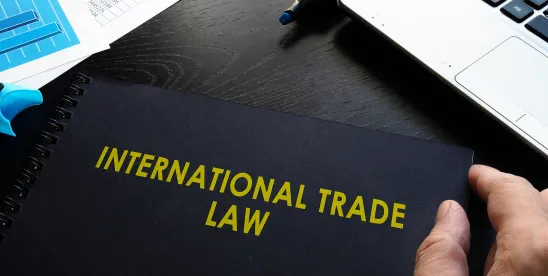On August 29, the U.S. Court of Appeals for the Federal Circuit (“CAFC”) ruled that the President cannot impose broad tariffs of unlimited duration using the International Emergency Economic Powers Act (“IEEPA”). Specifically, in a 7-4 ruling, the CAFC affirmed the U.S. Court of International Trade’s (“CIT”) decision in V.O.S. Selections, Inc. v. United States that held the tariffs unlawful, but vacated and remanded the CIT’s universal injunction against the tariffs. The CAFC has stayed immediate enforcement of the decision to allow the Administration time to appeal to the U.S. Supreme Court.
If the CAFC’s ruling stands, it will affect two types of tariff measures taken by the Trump Administration: (1) the tariffs imposed on Canada, Mexico, and China related to fentanyl trafficking and border security, and (2) the “reciprocal” tariffs imposed on virtually all countries to address the persistent trade imbalance in goods. The Administration predicated both of these types of tariffs on authorities derived from IEEPA. This ruling does not affect tariffs imposed under other legal authorities, such as duties imposed against steel and aluminum (and other products) under Section 232 of the Trade Expansion Act of 1962 or under Section 301 of the Trade Act of 1974 against China.
Background
Since January 2025, the second Trump Administration has leveraged tariff measures for a variety of objectives. This has included, among other things, orders meant to combat the flow of fentanyl, “reciprocal” tariff actions, and ongoing national security investigations into certain imported products. The Administration has also characterized tariffs as an important source of revenue.
In April 2025, shortly after President Trump unveiled his “Liberation Day” (“reciprocal”) tariffs, a group of businesses brought suit against the United States, arguing that IEEPA—which President Trump invoked as the legal basis for the “reciprocal” tariffs—did not authorize the President to take such actions. Later that same month, a group of states filed a similar suit challenging the “reciprocal” tariffs and the tariffs purportedly intended to combat the flow of fentanyl into the United States from China, Canada, and Mexico (described by the CAFC as the “trafficking tariffs”).
Although the Administration’s tariff policy continues to evolve, today those measures include:
- Worldwide (“reciprocal”) tariffs consisting of a base rate of 10 percent on all imports from U.S. trading partners, with higher rates for a number of countries, as a response to persistent U.S. trade deficits and alleged unfair trade practices; and
- Targeted tariffs on imports from China, Canada, and Mexico consisting of a 20 percent tariff on Chinese-origin items, a 25 percent tariff on Mexican products, and a 35 percent tariff on goods originating in Canada (excluding Canadian oil and potash, which is subject to a 10 percent duty). Goods from Canada and Mexico which comply with the United States-Mexico-Canada Agreement (“USMCA”) will remain exempt from the “trafficking” tariffs.
On May 28, the CIT held that such “reciprocal” and “trafficking” tariffs exceeded the President’s statutory authority and permanently enjoined their imposition. Less than twenty-four hours later, the CAFC temporarily stayed the lower court’s order and consolidated the Government’s appeals. The CAFC heard oral argument on July 31.
Key Legal Findings
The CAFC determined that Congress, in enacting IEEPA, did not authorize the President to impose broad tariffs, not limited in either scope or duration. Rather, while IEEPA allows the President to “regulate importation” during a national emergency, “the mere authorization to ‘regulate’ does not in and of itself imply the authority to impose tariffs.” Noting that the U.S. Constitution gives the authority to impose tariffs to Congress, the CAFC explained that, under the Supreme Court’s “major questions” doctrine, delegation to the executive branch of expansive authority in this area must be explicit. The four dissenting judges took the opposite view, asserting that the President traditionally has broad discretion in matters of foreign affairs. Meanwhile, the four concurring judges would have held that IEEPA does not confer any authority to impose tariffs and that the Administration’s interpretation of the scope of authority granted by IEEPA would render the statute an unconstitutional delegation of legislative authority.
Because the Supreme Court recently held that universal injunctions “likely exceed the equitable authority that Congress has given to federal courts,” the CAFC sent the case back to the CIT to take into account the Supreme Court’s opinion on the scope of the permanent injunction.
Next Steps and Key Takeaways
The CAFC’s August 29 order delays the effect of the decision until October 14, 2025, to allow the Trump Administration time to appeal the matter to the Supreme Court. President Trump has already announced that the Administration will appeal. The Administration has also indicated that should the tariffs ultimately be found illegal, it could pursue other legal avenues, such as Section 338 of the Smoot-Hawley Tariff Act of 1930, for the imposition of future tariff measures.
As first analyzed in Blank Rome’s May 30 client alert, should the CAFC’s decision be implemented:
- Tariffs imposed under the “reciprocal tariff” and “trafficking” executive orders would be set aside and imports would no longer be subject to the additional duties previously in effect. However, the CIT has been instructed to examine whether this relief should be limited to the plaintiffs that filed the lawsuit. If that were so, anyone else opposing the tariffs might need to file copycat lawsuits to seek refunds and relief from these tariffs going forward – at least until the Supreme Court rules.
- Meanwhile, as noted, the Administration might seek to reimpose the tariffs using other laws that it claims grant similar authority.
Given the fluidity of the current situation, importers and affected parties should monitor developments closely and consult with counsel regarding the status of the ongoing litigation, and any duties paid under the relevant tariffs and potential refund procedures.








 />i
/>i
